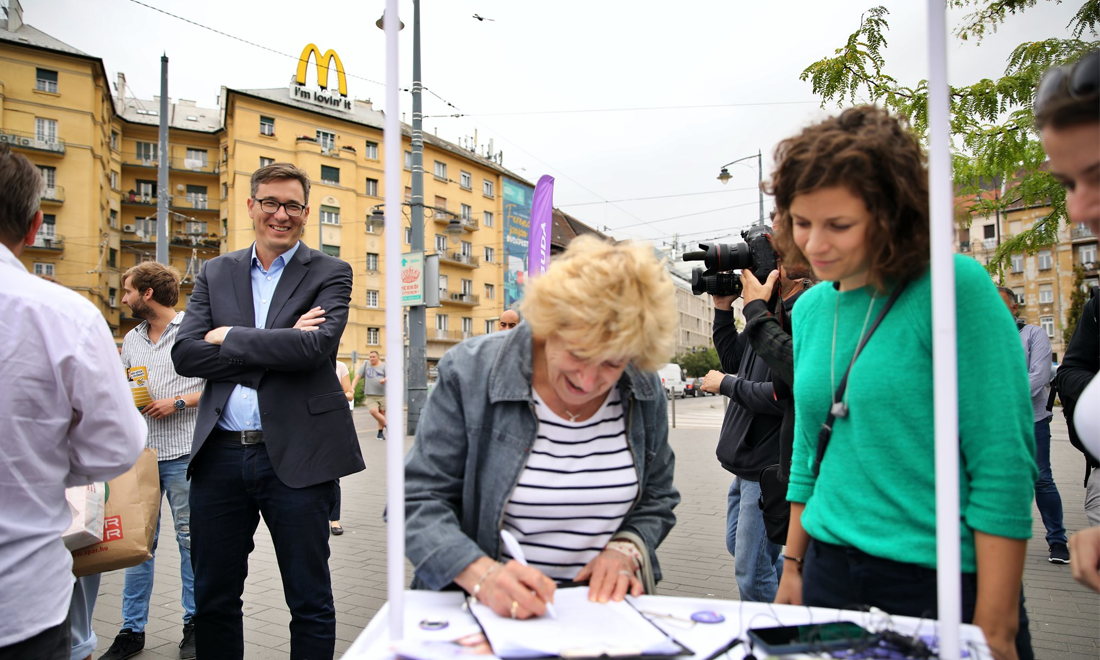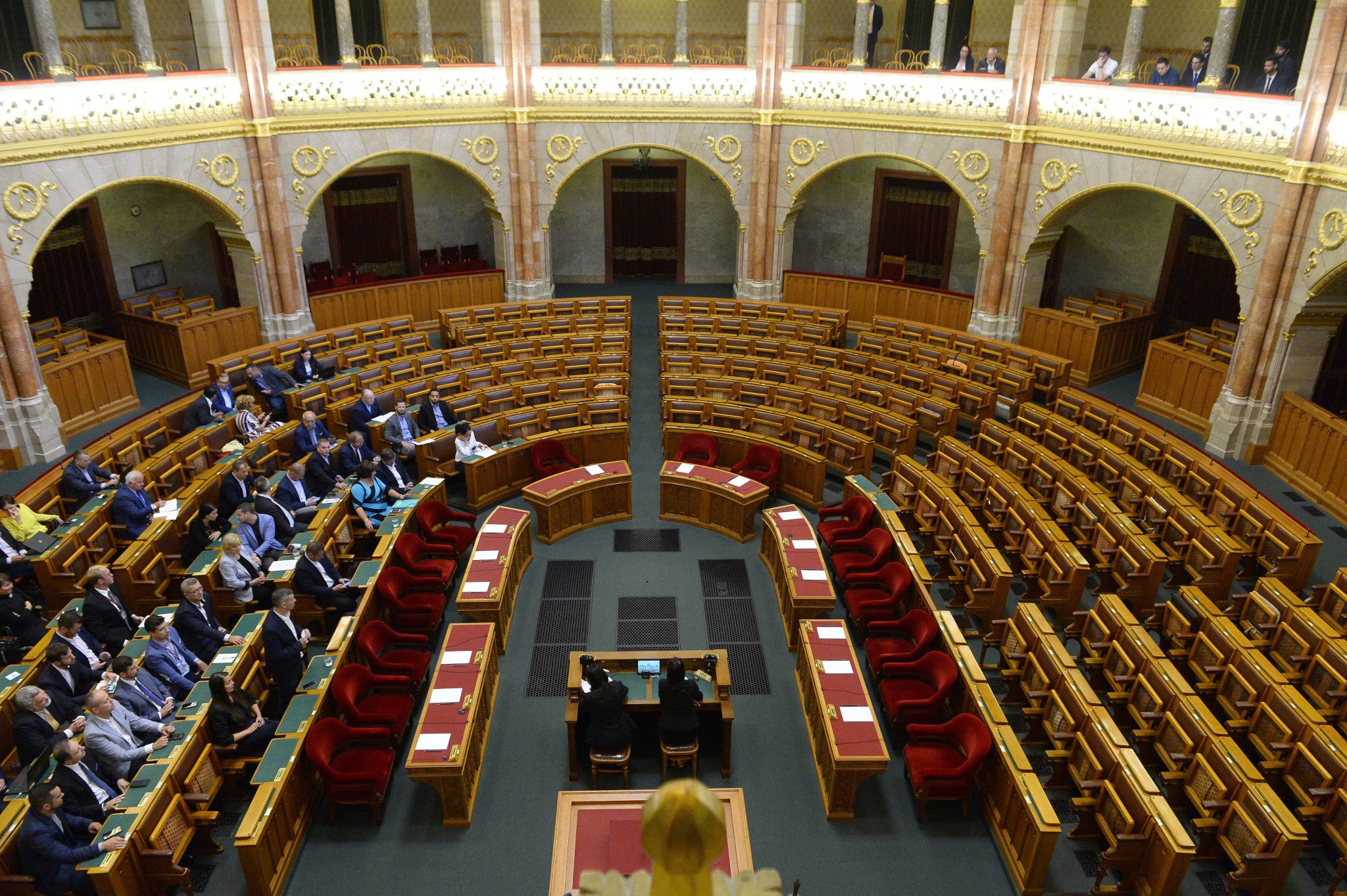
Following long negotiations and dealings, administration of the opposition primaries has just been concluded, and the procedure officially started on Monday. Eventually, seven candidates will enter the ring to lead the joint opposition parties and become Viktor Orbán’s challenger next April. Meanwhile, several others will challenge one other to be the MP candidate in the 106 electoral districts, so the winners can finally challenge ruling Fidesz’s candidates next year. Talks, deals, names, battles, predictions, promises: here is a quick review on the country’s first-ever primary elections.
The rules
At this stage, which started this Monday, both the PM and individual MP candidates have to garner the relevant number of signatures. While the former candidates are to collect twenty thousand recommendation slips country-wide, the latter will need 400 such signos locally.
While Orbán’s challenger will be elected in a two-round ballot (with the three best to make the 2nd round), individual MP-candidates will be chosen in only one round, something which paved the way for a great number of deals and withdrawals.
In a debated ruling, each candidate must declare in advance which of the six political groups they intend to join in Parliament, and the groups must also declare acceptance for the candidate in question. It is easy to see that this definitely made independent and ‘outsider’ candidates’ lives harder, generating criticism.
Fact
According to Hungary’s election rules, 106 seats will be up for grabs in the single member constituencies, while 93 seats are allocated through the national list, to make up Hungary’s 199-strong National Assembly. After the Fidesz-led government’s two-third majority voted in a controversial new addition to the electoral law, setting up one national list has remained virtually the only way for the opposition to go.
Related article
Newest Proposal to Election Law Can Force Opposition to One Party List
Recently, the government submitted an amendment proposal to the election law, which generated outrage among opposition parties, as in their view they only serve to hinder the opposition’s chances in the next parliamentary election. Now it seems that they will further increase the number of individual candidates required for the national list as the pro-government […]Continue reading
Online voting also possible
All Hungarian citizens who have a permanent, registered residence in Hungary and who will reach the age of 18 by next year’s general elections are entitled to vote in the opposition primaries.
Following a short registration, both onsite and online voting will be made possible, but voters can only cast their ballots according to their official residency.
The PM candidates
The six candidates are:
- Gergely Karácsony (incumbent Budapest mayor, of Párbeszéd party but also backed by LMP and MSZP)
- Péter Jakab (Jobbik president)
- Klára Dobrev (MEP of Democratic Coalition- DK)
- Péter Márki-Zay (Hódmezővásárhely mayor, Hungary for All Movement)
- József Pálinkás (Orbán’s former education minister, former Science Academy president, New World People’s Party- ÚVNP)
- András Fekete-Győr (Momentum president)
And in the last minute, a +1 runner has been made public too: Áron Ecsenyi, leader of the libertarian Down with 75% of Taxes party, who established his name by intensively protesting against coronavirus lockdowns.
At this point, Dobrev, Jakab, and Karácsony are anticipated to reach the second round, where both Momentum and Márki-Zay are forecasted to withdraw in favor of the Budapest mayor (if they make it to the second round), making Karácsony the favorite in the eyes of many. On the other hand, pollsters’ findings are fluctuating almost on a daily basis, with many predicting Jakab’s victory too, while recently Márki-Zay’s popularity appears to be on the rise.
It also must be noted that Dobrev (the wife of former, controversial PM Ferenc Gyurcsány), and Jakab (of formerly far-right Jobbik party) are said to be the most divisive names on the list.
Deals and controversies
First and foremost, due to the rules (again: individual MP candidates are elected in one-round of voting), a huge number of background deals have been made between the parties. This eventually resulted in only two candidates facing each other out of 45 of the constituencies. In addition, there currently are some 11 electoral districts where talks have already narrowed down the number of candidates to only one who could already prepare for the 2022 election. This has definitely generated criticism, with many arguing that voters should decide on the appropriate candidate instead of some obscure background dealings.
Interestingly, leftist DK and right-wing Jobbik made most of the withdrawal deals, but Momentum and MSZP-Párbeszéd also intensively cooperated.
In terms of numbers, DK will run 60, Momentum: 56, Jobbik: 47, MSZP: 42, New World People’s Party: 22, Párbeszéd: 10, and LMP: 9 candidates. Taking into account the number of accepted independent candidates, Momentum, would however, preceed DK, and Jobbik has some big names too, such as aforementioned Pálinkás (if Jobbik jumps the 5% threshold and ÚVNP can’t set up a faction).
Despite the deals, some tough competition is still foreseen: in Budapest’s 4th constituency, Párbeszéd strongman Bence Tordai will face DK’s (well-known former TV host) Olga Kálmán. And in Budapest’s 2nd, a hard clash will await DK’s Erzsébet Gy. Németh and Momentum’s Anna Orosz. Or perhaps the juiciest one of all: in Zugló, independent (but Momentum-backed) Ákos Hadházy, arguably the most active corruption fighter in politics, will have to confront MSZP strongman Csaba Tóth, who has been accused of corruption multiple times, and even with the disappearance of a local politician.
And further such deals are foreseen to come in the near future.
Related article
'In Hungary, Even Vaccine Choice is a Political Question' -Interview with Political Analyst Gábor Török
In the interview, the renowned political analyst speaks of Hungarian political tendencies, Fidesz, Viktor Orbán, and the opposition's chances at the next elections.Continue reading
The schedule
Following the recommendation that ballot collections will be concluded on September 6th, a first primary round taking place September 18-26 will select a single opposition candidate in each of the 106 constituencies and the three PM candidate ‘finalists’.
There will be a runoff in the vote for the prime ministerial candidate to be held between October 4-10. Participating parties promise to finalize their PM candidate and individual MP candidates by October 23rd (the national holiday of the 1956 revolution, which has always been of special importance in domestic political matters).
Following three easy victories, Orbán’s Fidesz now has real challenger
Most analysts definitely expect a tougher and tighter battle at the upcoming elections than in the three previous ones (all of them straightly won by Fidesz-KDNP by a two-thirds majority). Various surveyors and polls also confirm this trend: most put Fidesz and the opposition forces neck-and-neck, foreshadowing the tightest election race since 2006.
featured image: Karácsony and Momentum’s Anna Orosz (in green pullover) campaigning; via Facebook


